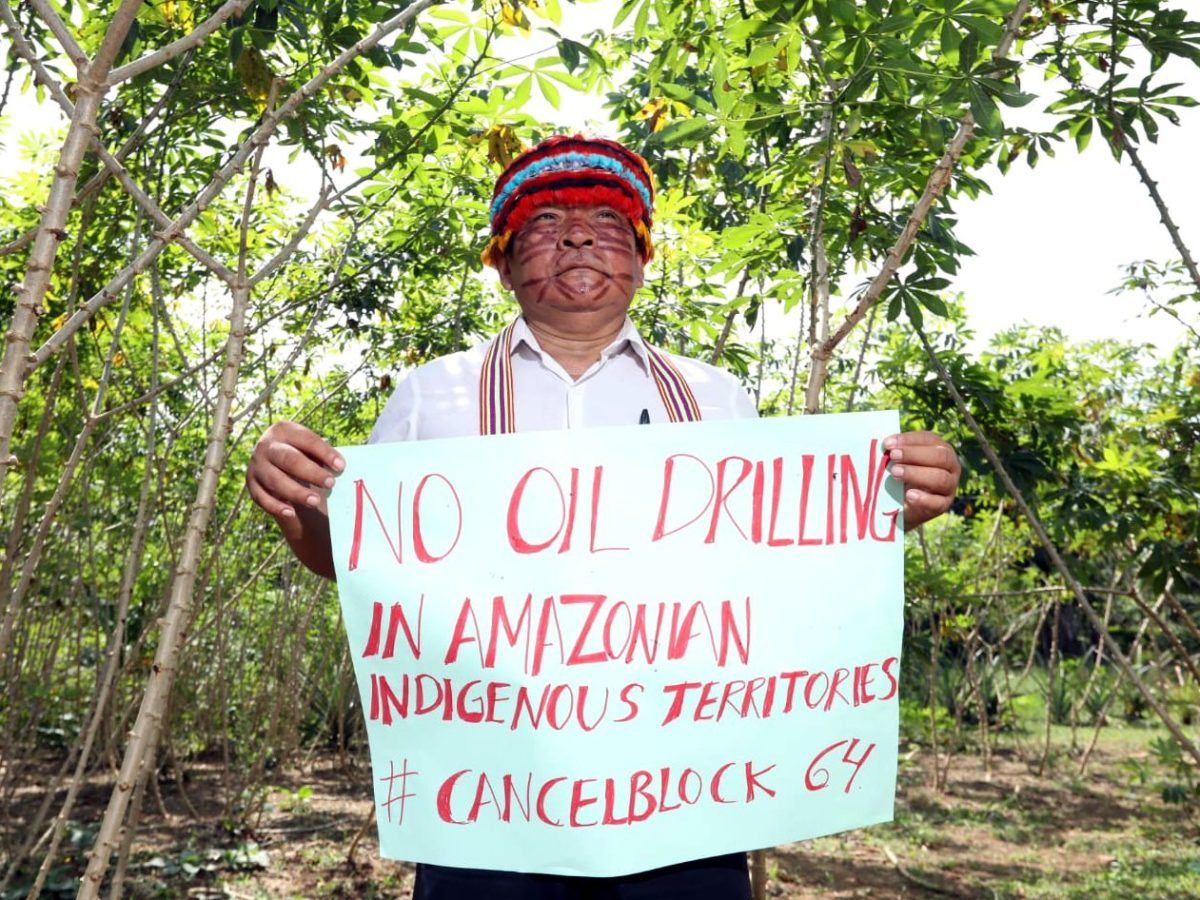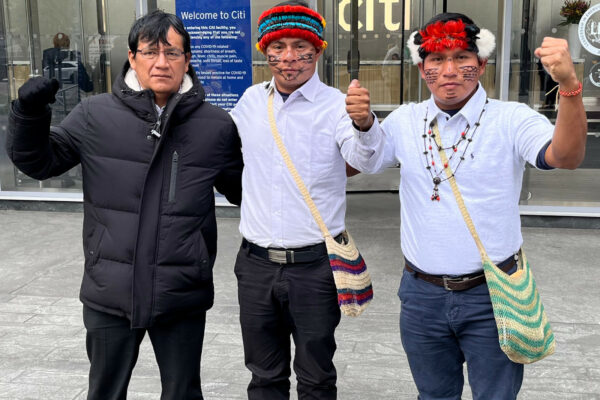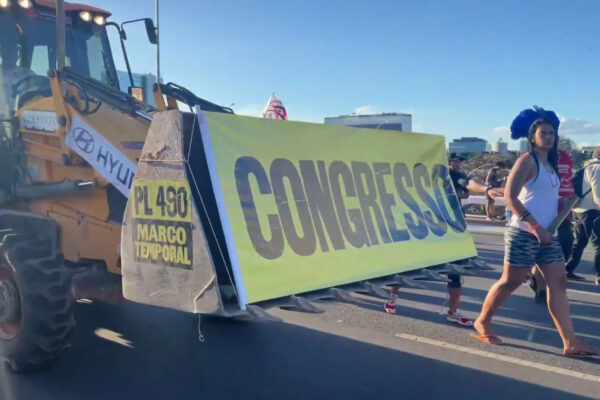In recent days, intense market and supply chain conditions – due in part to Russia’s invasion of Ukraine – have led to increasing inflation around the world, and Peru has been no exception. The country is facing massive protests and lock-downs, with Peruvian Congressional representatives largely taking advantage of the situation by calling for increased oil production as a means of controlling prices. In fact, today, the controversial Talara oil refinery will be inaugurated and touted by the government as a solution to the current energy crisis. It is not.
Indigenous peoples have spent decades warning us: Expanding fossil fuel production is not a long-term solution that guarantees us a liveable planet. With your participation, Amazon Watch has supported our Indigenous partners advocating against Amazon crude extraction in the rainforest. The Achuar People of the Pastaza River and the Wampis Nation, whose territory overlaps with Block 64 in the Peruvian Amazon, have opposed oil extraction and have so far been successful. Their territories are now under renewed threat.
Through our research with Stand.earth we found that the recent “modernization” of the Talara oil refinery, which is over a century old, has cost almost $5 billion, plunging its owner Petroperú into enormous debt. The project was financed through a syndicated loan involving banks such as Citigroup, Deutsche Bank, HSBC, JPMorgan Chase, and BNP Paribas. To repay these debts, Petroperú plans to maximize profits and keep Talara in production as much as possible. For the Peruvian government and Petroperú, this means increasing oil extraction in the Peruvian Amazon, including Block 64.
Additionally, in a few years, contracts on other oil concessions in the Peruvian Amazon and off of the country’s coast will end, so Congressional representatives are advocating for the return of all these blocks under Petroperú’s administration (similar to what happened with Block 64 when GeoPark left in 2020), to keep Talara operating. The continued operations of these blocks are incompatible with recent IPCC findings calling for an end to oil expansion in order to meet climate targets. Petroperú’s plans come at a much higher cost than just paying off its debts.
Petroperú started this year amid a crisis. The international consulting firm Price Waterhouse refused to audit Petroperú’s 2021 financial report, triggering the downgrading of its debt rating to junk status. This over-indebtedness, its corruption scandals, and other constant crises have left it without possibilities to invest its own funds in oil drilling, now that it has returned to the extraction business. As such, Petroperú will soon look for a partner with extra capital to drill Block 64 and desperately return to the stock market seeking more financing. So the private international banks that invested in the Talara modernization such as Citigroup, HSBC, and JPMorgan Chase, among others, will likely be at the top of Petroperú’s list when it looks for new funds. Bank investors should be wary to assume the risk that might come from another failure to exploit Block 64 due to such vehement and successful opposition by Indigenous communities.
Both the Wampis Nation and the Achuar People of the Pastaza, whose territories overlap within Block 64, will continue to express their rejection of any oil exploitation in their territories. In the last Inter-American Commission hearing, Galois Flores, an Indigenous leader from the Wampis Nation raised his voice, to restate the “historical opposition of the Achuar and Wampis peoples to any oil activity within their territories.” They have strongly opposed any oil drilling in their territories since the creation of Block 64 in 1995 and have successfully expelled multiple international oil companies, including Occidental, Talisman, and Geopark.
We have no doubt that Petroperú will meet the same fate, and alongside our partners we will double down and mount campaigns to make investors aware of the risks. Your solidarity is immensely crucial and we’ll be calling for your support over the next few months to maintain the pressure against Petroperú and the banks behind their disastrous plans – such as Citigroup and JPMorgan Chase. Together we’ll End Amazon Crude in Block 64, again.














